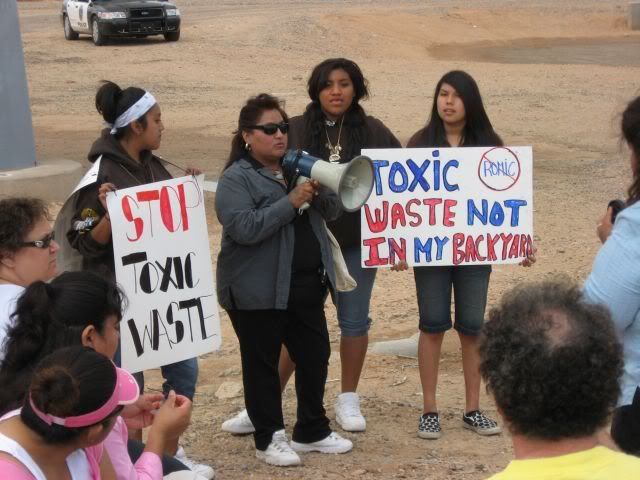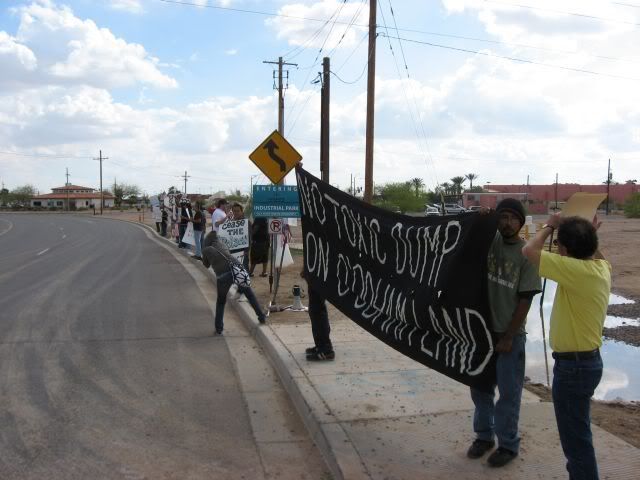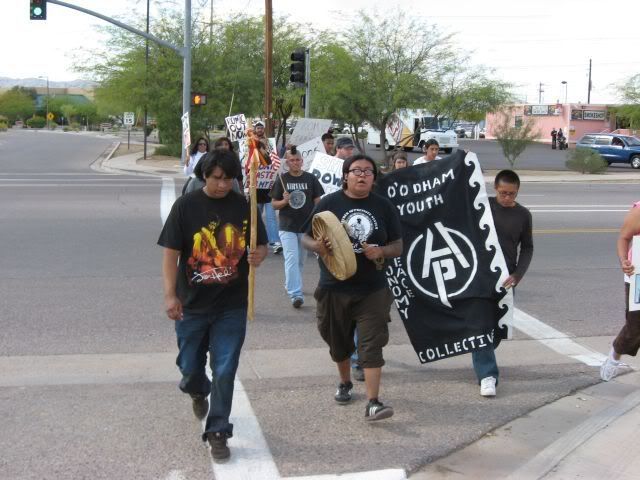News of Interest 3/26/07
(1) This piece doesn't quite go far enough - after all, less cops are a good thing, not a bad thing. However, it does make a very good point that is so often missed: these technologies exist to control people and to prevent not just crime, but insurrection. In that sense, they are just like the police. They are a tool that exists and will spread because the elite class wants to keep us all in place so their profits may safely flow.
(2) French politics, marked as of late by a rush of all parties, left and right, to the imagery of the Tricolor (something that ought to be familiar to Americans), has now made the leap into the virtual world of Second Life. Time will tell if the parties can deliver better on their promises online than they do in rl.
(4) Website of interest to revolutionaries:
Global Guerrillas
John Robb's excellent website suffers a bit at times from bouts of arrogance, but it is a wonderful resource for understanding the ways that global resistance movements currently operate and have evolved over the last few years. Further, there are plenty of lessons for anarchists, as our philosophy and organizational model complements quite well the systems disruption methodology recorded and analyzed at this website. In a way, though, it's an old idea: hit 'em where they ain't and be creative about it (since the state cannot be everywhere at once - yet! - well placed strikes can find force multipliers and reverberations within the modern inter-related economy). Read it regularly.
Mind how you walk. It could be a crime
"In the media, whenever we wish to describe the burgeoning intrusiveness of the past decade, we are inevitably drawn to one of our greatest writers, George Orwell - although even he could not have envisaged that, in addition to the ubiquitous cameras, it would be possible to track everyone from cradle to grave through computer-chip technology or to build up a database of the population's DNA. But he would have understood why it is being done. In 1984, it is about control. The state tells its people that the cameras are there for their benefit and to prevent crime, but the crime they are preventing is insurrection. Everyone is watched to ensure they conform."
(2) French politics, marked as of late by a rush of all parties, left and right, to the imagery of the Tricolor (something that ought to be familiar to Americans), has now made the leap into the virtual world of Second Life. Time will tell if the parties can deliver better on their promises online than they do in rl.
Surreal campaigns as French politics go virtual(3) Bees are disappearing (bringing a collapse in pollination), the ice caps are melting (causing a crisis of rising sees and shrinking drinking water), the temperature rises ever higher (bringing tropical diseases further north while making millions refugees), and now scientists say that many of the climates we recognize today will vanish or change radically, leading to extinction for many species. Ever wondered what environmental collapse would look like? Well, check the news because this is it and it's going on right now. So, the question becomes, how bad does it have to get before you take some kind of action? How much environmental collapse can you tolerate?
"Clashes between political opponents are quite common in Second Life, which also witnessed vandalism to the virtual office of U.S. democrat Presidential candidate John Edwards. As supporters of France's far-right National Front party gathered at Le Pen's site to discuss a farewell speech from outgoing President Jacques Chirac this month, they were interrupted by the sudden discovery of some broken National Front slogans on their site."
'New, unknown climate zones by 2100'
"Global warming could remake the world's climate zones by 2100, with some polar and mountain climates disappearing altogether and formerly unknown ones emerging in the tropics, scientists said on Monday. And when climate zones vanish, the animals and plants that live in them will be at greater risk of extinction, said Jack Williams, lead author of a study published in the journal Proceedings of the National Academy of Sciences."
(4) Website of interest to revolutionaries:
Global Guerrillas
John Robb's excellent website suffers a bit at times from bouts of arrogance, but it is a wonderful resource for understanding the ways that global resistance movements currently operate and have evolved over the last few years. Further, there are plenty of lessons for anarchists, as our philosophy and organizational model complements quite well the systems disruption methodology recorded and analyzed at this website. In a way, though, it's an old idea: hit 'em where they ain't and be creative about it (since the state cannot be everywhere at once - yet! - well placed strikes can find force multipliers and reverberations within the modern inter-related economy). Read it regularly.
Labels: news











